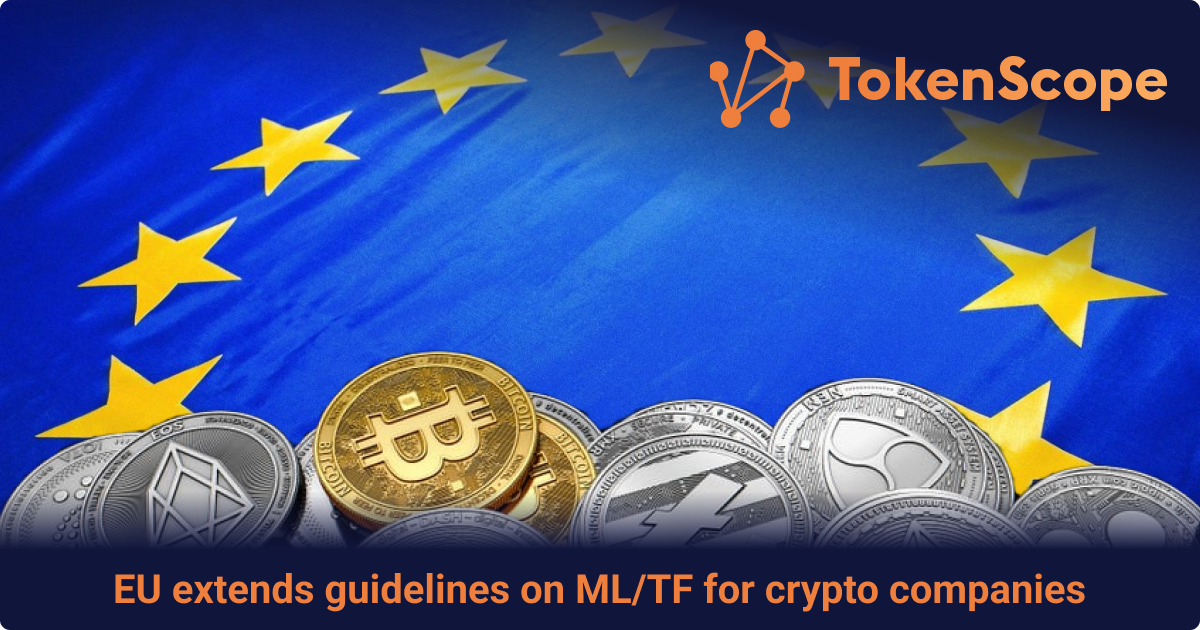Crypto regulation in the world: weekly digest #77

USA
The US SEC is on the brink of approving a first spot bitcoin ETF in the U.S. after 10 years of failed applications. People familiar with the filing process have said issuers that met end-of-year filing revision deadlines may be approved to launch by Jan. 10, 2024. The key date to watch is January 10, which is the deadline that the SEC set to determine whether to approve a Bitcoin ETF application. If that application is approved, it’s likely that others will be, too.
Bloomberg Intelligence analysts estimate that there is about a 90% probability the SEC will approve the ETFs by Jan. 10. However, opinions on what will happen in the crypto market if approval is granted are mixed. Some analysts insist that the odds are good that the ETFs will be approved and launched this year, while others believe that the SEC will deny the ETF applications.
A U.S.-regulated spot Bitcoin ETF could significantly increase Bitcoin's accessibility, liquidity, and demand, allowing investors to safely access cryptocurrency without directly handling digital assets. This could lead to a surge in the number of investors participating in the crypto market.
From the other side, it could cause initial price fluctuations as the market adjusts to the new influx of investors and the increased demand for Bitcoin. Some analysts predict that the price of Bitcoin could rise due to the influx of major institutional investors, that will follow BlackRock and Fidelity, which have already applied for their own spot Bitcoin ETFs.
UAE
The UAE ADGM regulatory body, the Financial Services Regulatory Authority (FSRA), have updated guidance for Virtual Asset Service Providers (VASPs) operating within the free zone. The guidance includes red flags to identify suspicious parties, such as a lack of regulatory compliance, making unrealistic promises, poor communication, and a failure to provide regulatory disclosure.
The new Guidance in the ADGM is aimed at raising awareness and helping financial institutions, designated non-financial businesses and professions (DNFBPs), and virtual asset service providers (VASPs) in the UAE to assess and mitigate proliferation financing risk. The guidance also provides definitions of proliferation financing, stages of proliferation financing, and the UAE's AML/CFT legal framework. It also includes a list of red flags to assist in identifying and uncovering proliferation financing sanctions evasion activities. The document is issued in line with the FATF Standard and is intended to ensure that proliferation financing risks are properly assessed and mitigated.
In other free economic zone of the UAE – DIFC – the local regulator Dubai Financial Services Authority (DFSA) has realeased the Consultation Paper No. 153, which provides updates on the regulation of crypto tokens in Dubai. The paper outlines the DFSA's proposed approach to regulating crypto tokens and seeks feedback from stakeholders.
The deadline for providing comments on this Consultation Paper is March 4, 2024.
India
The Financial Intelligence Unit (FIU) under the Indian Finance Ministry has issued show cause notices to nine offshore cryptocurrency exchanges, including Binance, Kucoin, HTX, and Kraken, for alleged non-compliance with Indian anti-money laundering law. The FIU has asked the Ministry of Electronics and Information Technology to block their URLs. This action has been taken for their alleged illegal operation in India and non-compliance with anti-money laundering regulations.
Non-compliance with anti-money laundering (AML) laws in India can lead to severe consequences, including legal and regulatory enforcement actions. The penalties for non-compliance under the Prevention of Money Laundering Act, 2002 (PMLA) can be significant, potentially resulting in damage to the reputation of the entity, loss of clients, and business. Additionally, non-compliance with AML regulations can lead to criminal liability for individuals within the organization.
After the warning, there has been a surge in crypto deposits on Indian platforms, with some users moving their funds from international exchanges to Indian ones.
Nigeria
The Central Bank of Nigeria (CBN) has approved the Africa Stablecoin Consortium (ASC) to pilot the cNGN stablecoin in its regulatory sandbox. The cNGN stablecoin is pegged 1:1 to the Nigerian naira and is backed by Naira reserves held in designated commercial banks. It aims to facilitate seamless transactions between the naira and digital currencies globally, offering a cost-effective alternative to traditional remittance methods. The stablecoin is set to launch on February 27, 2024, and is expected to revolutionize the way people transact and engage with their money securely and seamlessly.
The cNGN stablecoin is also positioned to ease international transactions for Nigerians abroad and is expected to bridge the gap between the naira and digital currencies in the global market. It is also designed to simplify international transactions, reduce the complexities and costs associated with currency conversion and international transfers, and make remittances almost instantaneous, mirroring the ease and speed of sending a text message.




